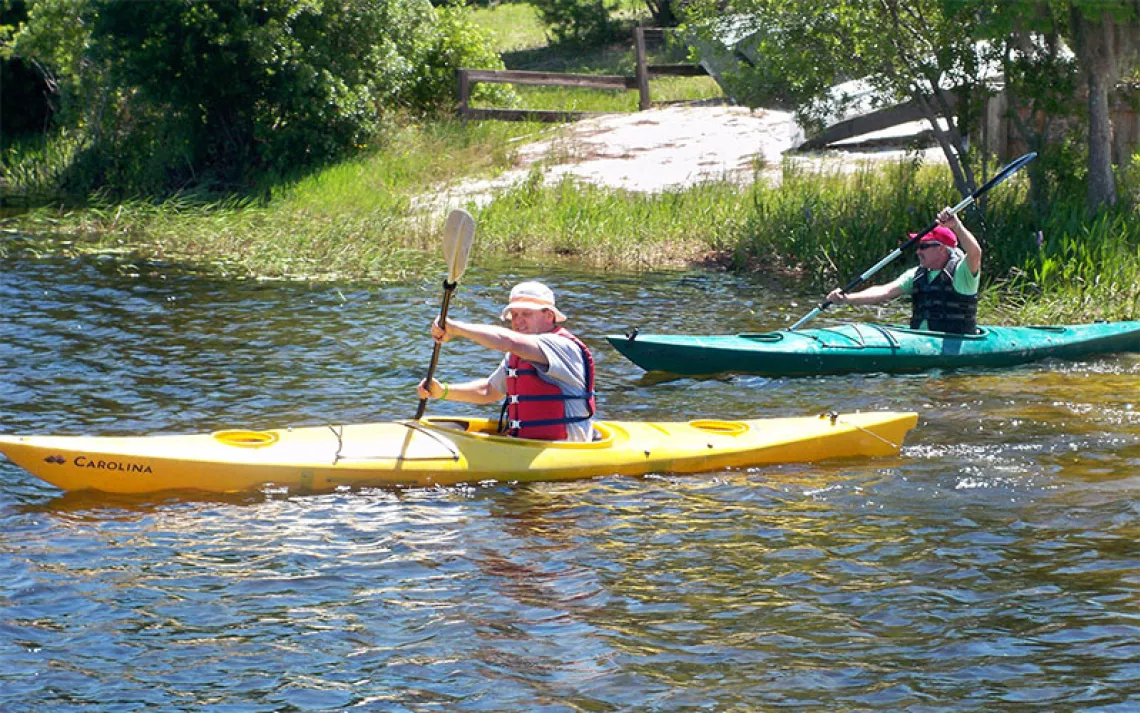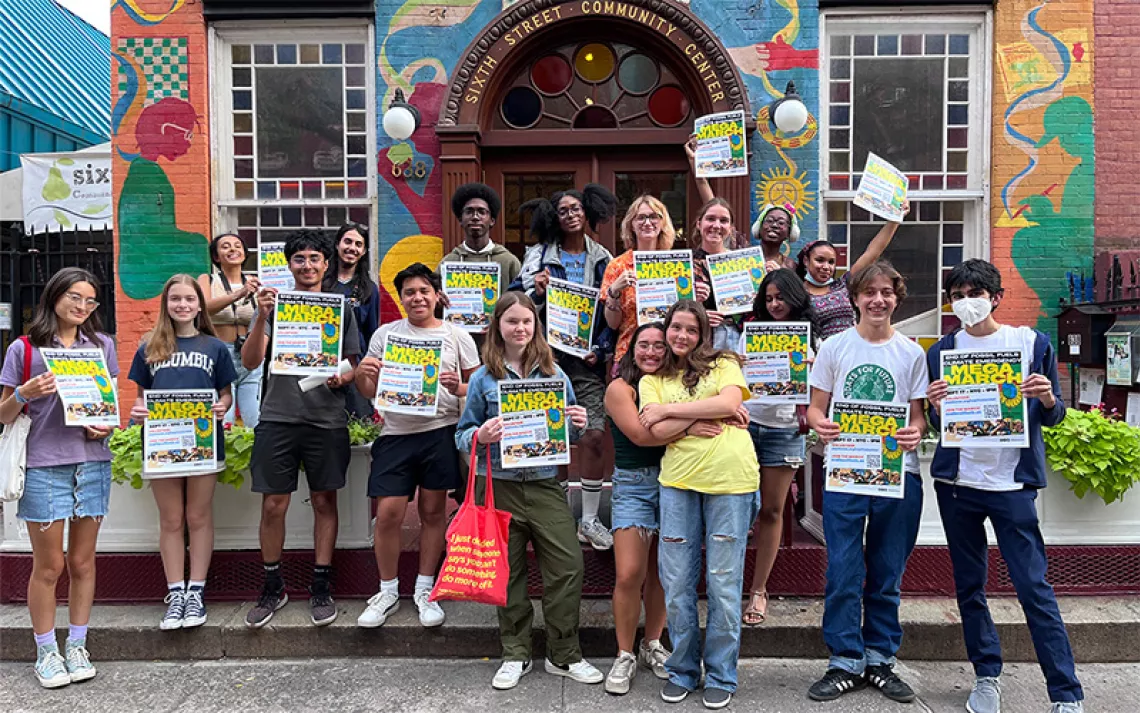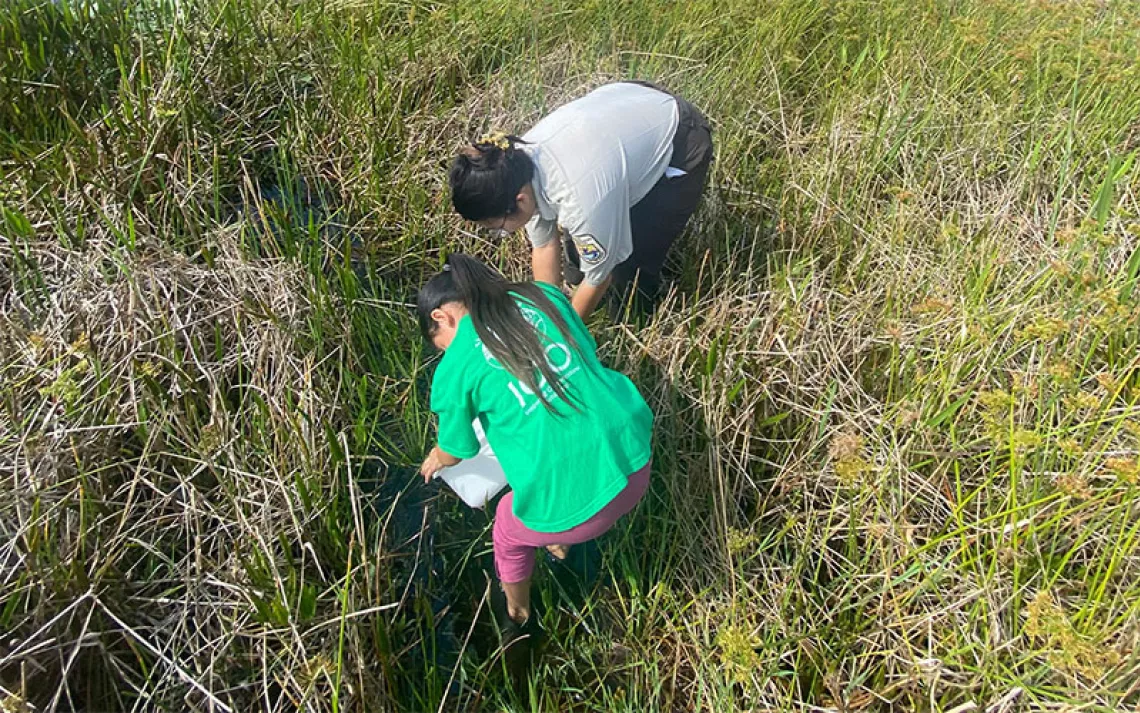How Boise Educator Dick Jordan Has Sparked a Love of Nature in Students
An award-winning high school teacher got his students out of the classroom and into the wild
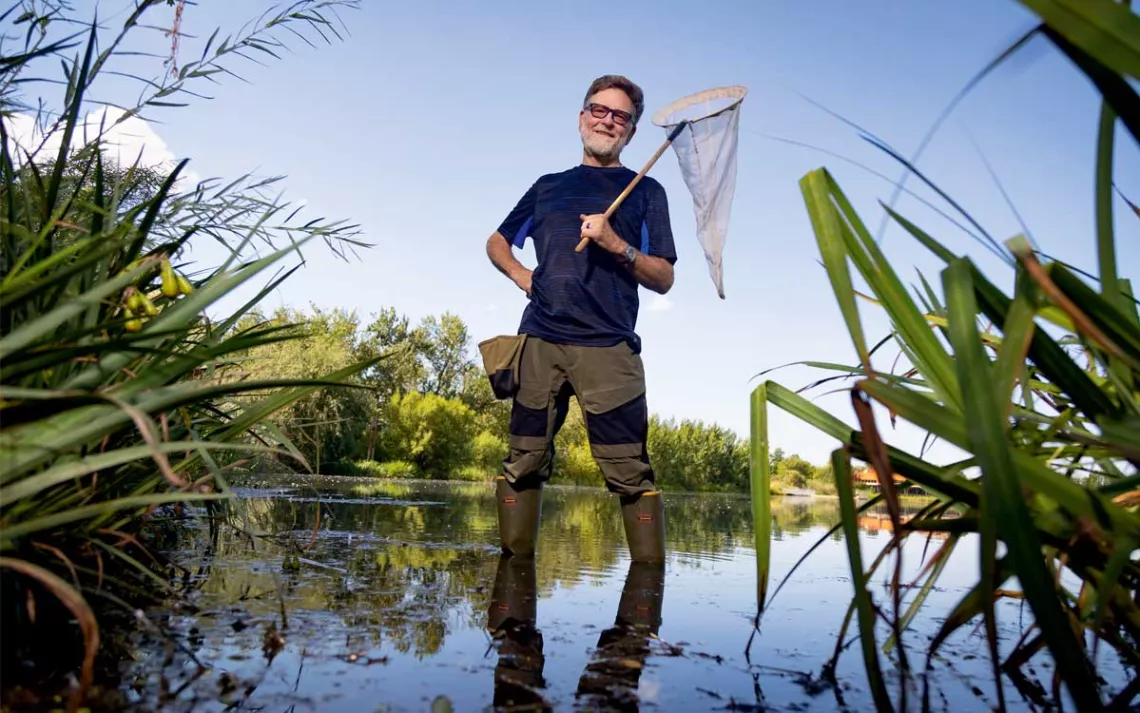
During his 40-year career, Boise educator Dick Jordan sparked a love for wildlife in his students. | Photo by Kyle Green
Dick Jordan will never forget the moment two students asked him to help them launch an ecology club at Jerome High School in Idaho. It was 1990, and as a biology teacher with a background in conservation, Jordan was excited to oblige. He helped the students come up with a name—Teens Restoring Earth's Environment, or TREE. A few years later, he assisted them in hatching an advocacy campaign to help popularize the group: a drive to support the reintroduction of gray wolves in Idaho.
In TREE's early years, wolf reintroduction was by far the biggest critter issue in Idaho. But the state's political establishment was opposed to the idea. So TREE members and Jordan organized a rally during which 400 students marched to the Idaho capitol to urge lawmakers to support wolves and the Endangered Species Act. Students created wolf art that was hung up across the school. And when he moved to Timberline High School in Boise a few years later, Jordan started a new branch of TREE and mounted a successful campaign to change the school's mascot to a wolf.
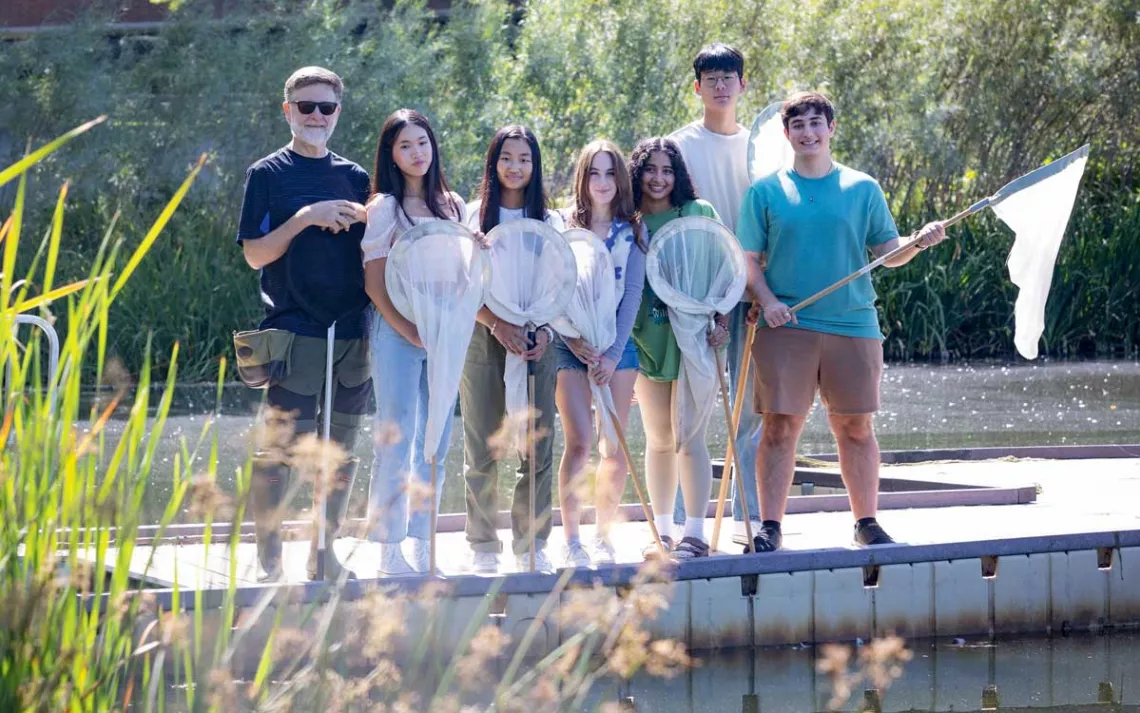
Retired biology teacher Dick Jordan with participants in his outdoor education program, Finding Dragons. | Photo by Kyle Green
Jordan's early-'90s pro-wolf advocacy was just one element of his decades-long effort to get his students to fall in love with wild nature. Through TREE—which remains in action more than 30 years after its founding and has expanded to five other Idaho schools—students learn how ecosystems function, study the roles of wildlife species on the landscape, and get trained in the basics of field biology. They also meet with researchers and assist them with their studies, and participate in outdoor activities like whitewater rafting.
"Being a teacher was easy for me because I'm a showman," Jordan says. "So for me, it was showing the stuff I love and then unpacking it. We would go on field trips, and that's why when TREE came about, it opened the door, because then I was not just a classroom teacher. It was all about field trips."
Jordan's success in taking the classroom to the outdoors has won him national recognition. In 2012, he was one of the recipients of the Presidential Award for Excellence in Mathematics and Science Teaching. His students' advocacy has been covered by the BBC, The Washington Post, and The New Yorker. Most important, he has motivated countless students throughout the years.
"In a place like Idaho, there are a lot of authorities that are very anti-science," says former TREE member Ethan Tolman, who is now a PhD candidate at the City University of New York. "So it was inspiring to see somebody on a local level being willing to stand up for science."
By far the most memorable—and emotional—of TREE's efforts was its wolf program. The club's wolf education got personal in 2002, when Suzanne Asha Stone, who then worked at Defenders of Wildlife, asked Jordan if TREE wanted to adopt a wolf pack. Stone had been a frequent presenter at Timberline High, teaching the kids how to howl and sharing with them the importance of wolves to keep deer and elk populations in check. By the early 2000s, wolves were moving off federal and tribal land, where they had been reintroduced, and into other parts of Idaho. The US Fish and Wildlife Service (FWS) had located a female and her pup just north of the school. For Jordan, the idea of adopting the pack made perfect sense.
"I immediately saw a unique opportunity to build a profound connection with a family of wolves," Jordan says. "I wanted students to take responsibility for a relationship that very few get and help the general public understand why these creatures deserve our respect and protection."
The students named their new neighbors the Timberline Pack and got permission from the Nez Perce Tribe to track the wolves on tribal land. With the help of former FWS biologist Carter Niemeyer, Jordan and the club members took overnight field trips to the pack's territory. They rarely saw wolves, but the kids reveled in the echoes of their calls during howl surveys and got the chance to study the remains of wolf kills.
TREE students visited the wolf pack's territory seven times over the years. While the wolves remained popular among most students at Timberline High, antipathy toward wolves was growing in Idaho. In 2011, gray wolves in the Northern Rockies were removed from Endangered Species Act protections, and in 2021 a state law went into effect that allowed hunters to kill wolves without bag limits, using an extensive arsenal including choke-hold snares and leghold traps. At the end of 2021, nearly 20 years after TREE adopted the Timberline Pack, Jordan learned that all members of the pack had been shot, including the pups.
TREE's student co-vice president at the time was a junior named Michel Liao, who was stunned that the wolf pack had been massacred. With Jordan's encouragement, Liao gathered all the data he could on why the state was killing wolves with such fervor. After speaking with biologists, Liao found out that the state was misapplying the statistical model used to determine the wolf population—which had the result of inflating wolf numbers and allowing for more kills.
"I was trying to get both sides of it because Mr. Jordan was like, 'Hey, the best way to learn about this is to just look it up and research it,'" Liao says.
Jordan retired from full-time teaching in 2015, but he remains involved with TREE as an informal adviser. He started a nonprofit called LifeOutdoors, which offers two outdoor education programs. The Boise River Biodiversity Project enlists high schoolers to serve as science mentors to elementary school students, who pick one animal to learn about. Finding Dragons is a community scientist program in which students and adults survey dragonflies and damselflies, both of which are indicator species for healthy wetlands.
"Education has got to be paramount," Jordan says. "If you're not teaching people the importance of healthy ecosystems, it doesn't matter what parks and corridors you've got out there. You've already lost the game."
 The Magazine of The Sierra Club
The Magazine of The Sierra Club

